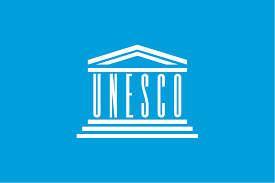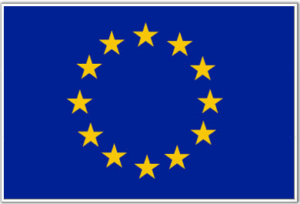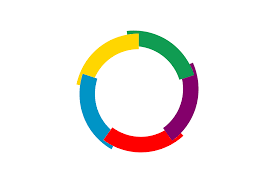The flag of the United Nations Educational, Scientific and Cultural Organization (UNESCO) is a symbol that represents the organization’s commitment to promoting international collaboration in education, science, culture, and communication. It features a unique design and holds significant meaning. In this article, we will explore the UNESCO flag, its design, and its significance.
UNESCO Flag Facts
| Fact | Description |
|---|---|
| Design | Light blue background with the UNESCO emblem in the center |
| Emblem | A white circle with the word “UNESCO” written in blue capital letters |
| Laurel Wreath | Surrounds the name “UNESCO” and is made up of olive and palm branches |
| Olive Branch | Symbolizes peace and intellectual cooperation |
| Palm Branch | Represents victory and the organization’s role in advancing education, science, culture, and communication |
| Flag Dimensions | The official UNESCO flag has a ratio of 2:3, where the length is 1.5 times the height |
| First Use | The UNESCO flag was first introduced in 1946 during the organization’s founding |
| Flag Protocol | The flag is flown during official UNESCO events, conferences, and at UNESCO headquarters |
| Flag Variations | The UNESCO flag may vary in size, from small desk flags to large outdoor display flags |
These facts provide an overview of the UNESCO flag and its various elements, which hold symbolic significance for the organization.
Design and Symbolism
The UNESCO flag features a light blue background, which represents peace, serenity, and the importance of dialogue and understanding. The color reflects UNESCO’s dedication to fostering global cooperation in the fields of education, science, culture, and communication.
The emblem at the center of the flag consists of a white circle with the word “UNESCO” written in blue capital letters. The simplicity of the design ensures clarity and visibility, allowing the emblem to be easily recognizable. The name “UNESCO” represents the organization and its commitment to its founding principles and objectives.
Surrounding the name “UNESCO” is a laurel wreath, composed of olive and palm branches. The olive branch symbolizes peace and intellectual cooperation, emphasizing UNESCO’s mission to build bridges between cultures and promote understanding. The palm branch signifies victory and the organization’s role in advancing education, science, culture, and communication worldwide.
Significance
The UNESCO flag carries significant symbolism and represents the organization’s values and objectives. It serves as a visual reminder of UNESCO’s commitment to promoting peace, advancing knowledge, and preserving cultural heritage.
The light blue background represents the peaceful nature of UNESCO’s work and its role in fostering dialogue and collaboration among nations. The emblem, with its laurel wreath and the name “UNESCO,” encapsulates the organization’s mission to promote intellectual cooperation, cultural understanding, and the exchange of ideas.
The laurel wreath, composed of olive and palm branches, further emphasizes UNESCO’s commitment to peace, victory, and the advancement of education, science, culture, and communication. It signifies the organization’s efforts to create a better world through the power of education, cultural diversity, and scientific advancements.







